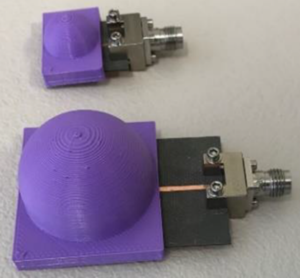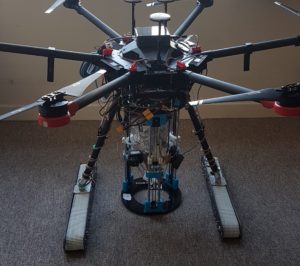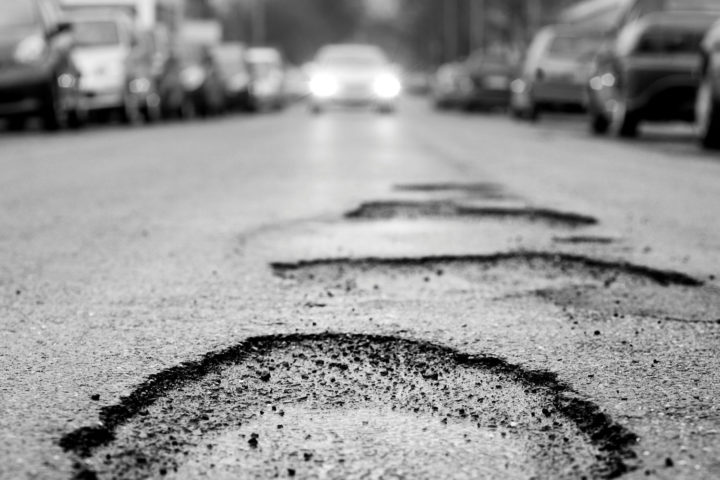
Robots for Self-Repairing Cities, 20 June 2018, Birmingham
Self-Repairing Cities Annual Event
20 June, Hornton Grange, University of Birmingham
The Self-Repairing Cities annual event took place this year on 20 June at the University of Birmingham and was a lively affair. It brought together just under 60 people from academia, industry and public sector organisations to discuss current challenges in maintaining city infrastructure systems and how state of the art robotic technologies can be used to address those challenges, improving infrastructure resilience and reducing disruption from streetworks.
The event heard from a diversity of speakers including: Kevin Paine (University of Bath), Dan Hook (ASV Global), Tony Rachwal (UK Water Partnership), Graeme Cleeton (ULC Robotics), Stuart Jauncey and Steve Crossland (Balfour Beatty), as well as a number of talks from Self-Repairing Cities project partners.
The full programme, including speaker abstracts, can be viewed here: Programme for Robots for Self-Repairing Cities Event, including speaker abstracts
Thank you to all the speakers who have kindly allowed us to share their presentations, you can find links to these below.
- Chris Rogers, University of Birmingham – Introduction (pdf)
- Kevin Paine, University of Bath – Advances and developments in self-responding construction materials (pdf)
- Mark Miodownik and Richard Jackson, UCL – Road repair by 3D printing – terminating potholes (pdf)
- Dan Hook, ASV Global – Where water meets city infrastructure – the use of marine robotics for inspection (pdf). Please note that the original presentation included video that is not available in this version.
- Graeme Cleeton, ULC Robotics – The Role of Robotics in the Cities of Tomorrow (pdf). Please note that the original presentation included video that is not available in this version.
- Stephen Prior, University of Southampton – Drone Revolution (pdf). Please note that the original presentation included video that is not available in this version.
- Rob Richardson, University of Leeds – Zero disruption from streetworks by 2050 (pdf)
- Tony Rachwal, UK Water Partnership – Rejuvenating the urban utility underworld (pdf)
- Stuart Jauncey and Steve Crossland, Balfour Beatty – Digital Balfour Beatty (pdf). Please note that links to the videos presented are listed on the last slide.
- Chris Rogers, University of Birmingham – Infrastructure condition assessment and an autonomous decision framework (pdf)
- Gary Dymski, University of Leeds – Can people in self-healing cities be self-employing? (pdf)
Conference Gallery
Many thanks to Manu Sasidharan, University of Birmingham, for additional support with photography on the day.
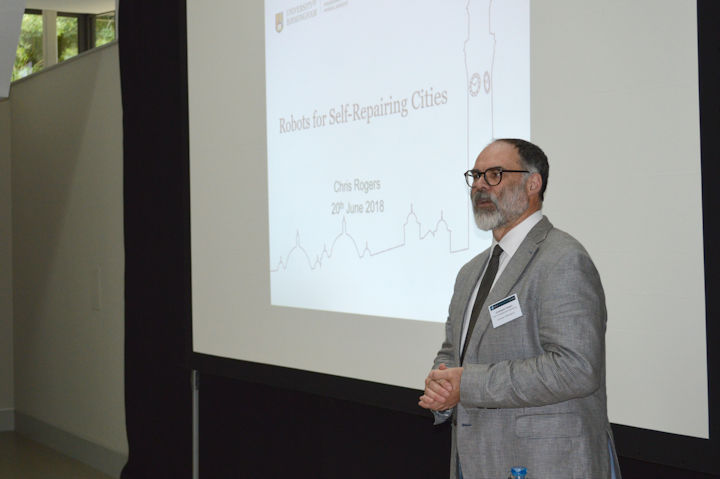
Chris Rogers, University of Birmingham, kicks off the meeting. Is everyone paying attention? Good, then we’ll begin…
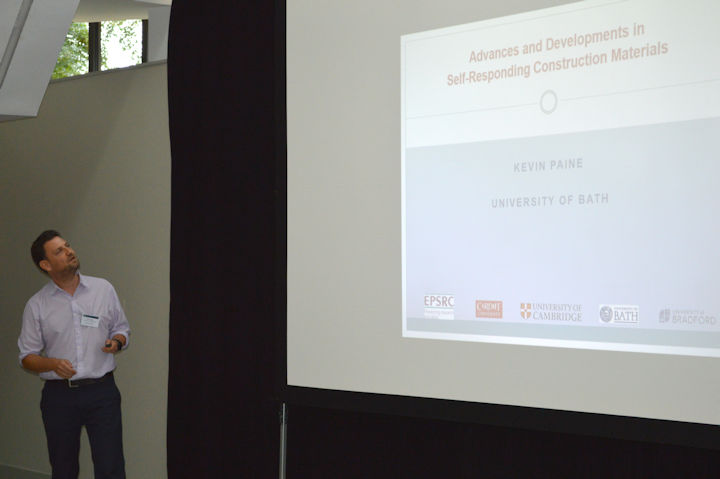
Our first keynote, Kevin Paine talks about the Materials for Life project and self-healing concrete.
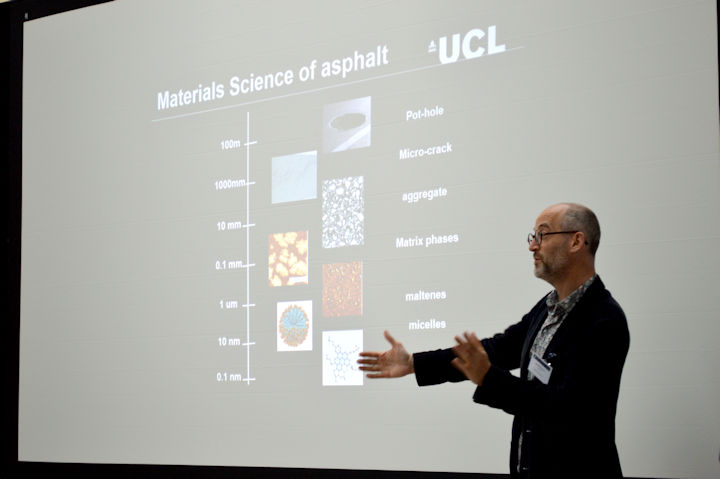
Mark Miodownik, UCL, picks up the theme of self-healing materials , describing the work Self-Repairing Cities on asphalt.
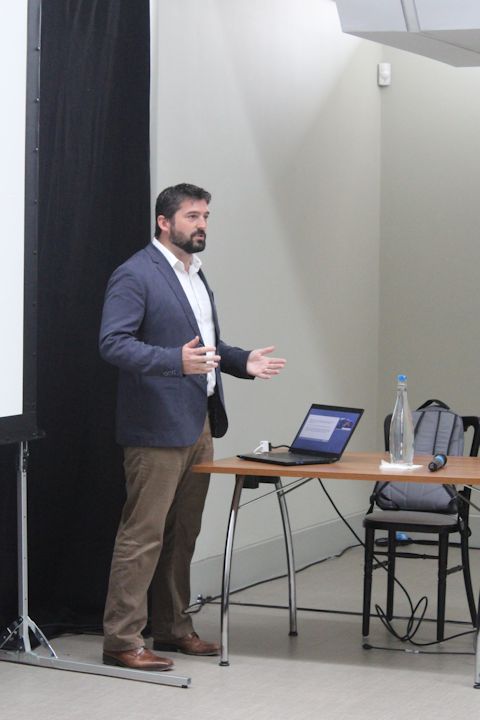
Dan Hook, ASV Global, talks about the challenges of looking after coastal infrastructure and the opportunities for robotics to help in the future.
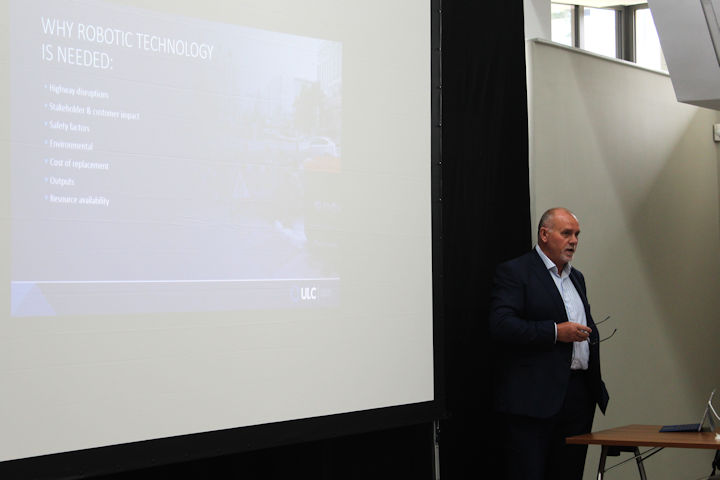
Graeme Cleeton, ULC Robotics, outlines the developments they have made in sealing leaking gas pipes from within, reducing the need to dig the roads up.
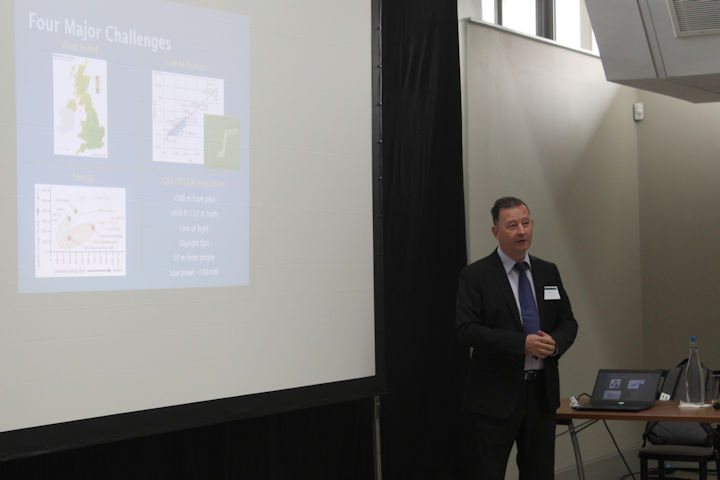
Stephen Prior, University of Southampton, outlines some of the physical and regulatory constraints that need to be taken into account when developing drones for infrastructure applications.
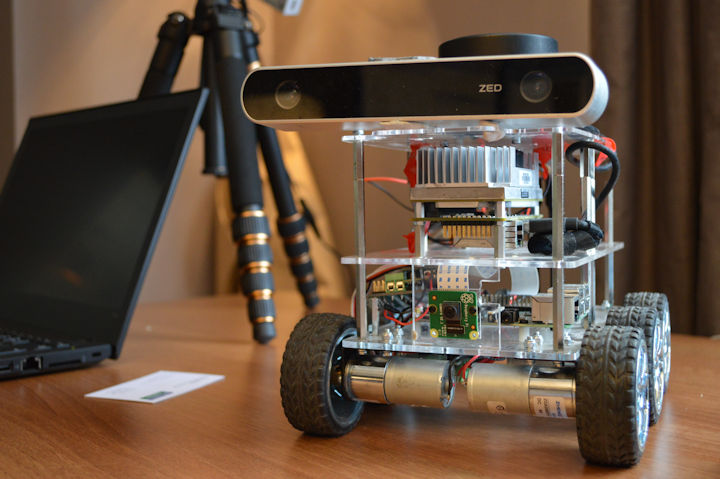
Time for a spot of lunch and a look at the displays, here is our bridge bearing inspection robot, courtesy of Harriet Peel and the team at the University of Leeds.
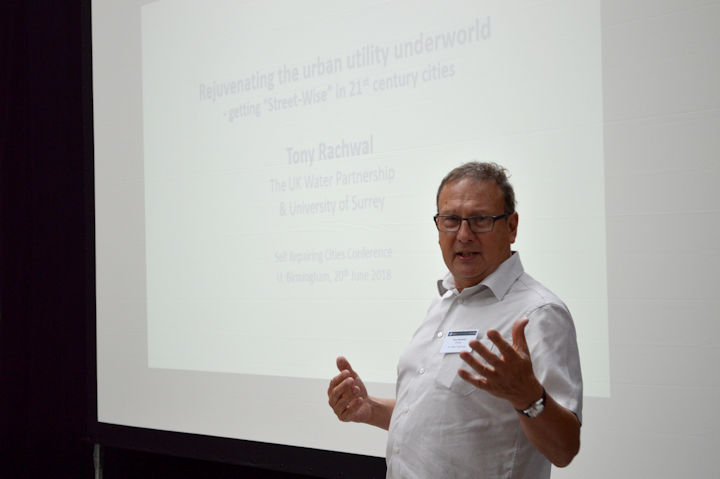
Tony Rachwal, UK Water Partnership, talks about the infrastructure underworld of pipes and the need for body-scanner equivalents for our streets.
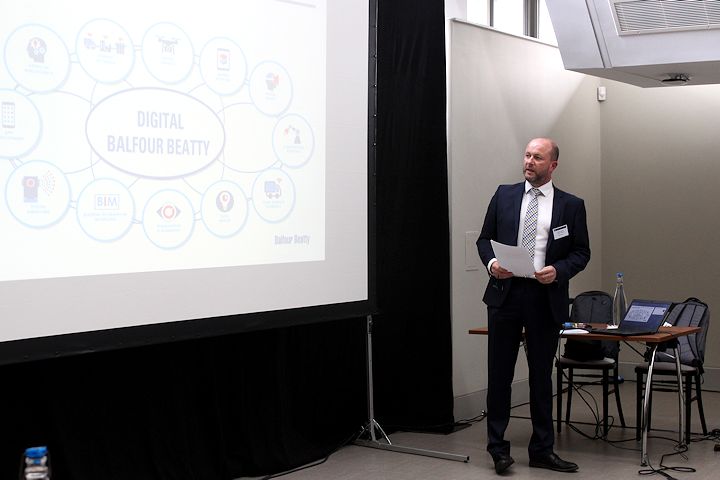
Stuart Jauncey, Balfour Beatty, picks up from colleague Steve Crossland to talk about how the digital world can be used to allow infrastructure work to be conducted safer and smarter.
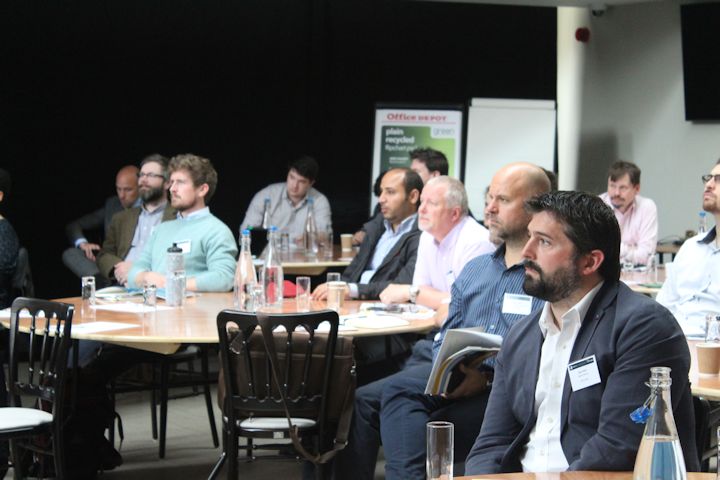
Dan Hook and other attendees listening very intently, getting ready for some keen-edged questioning later.
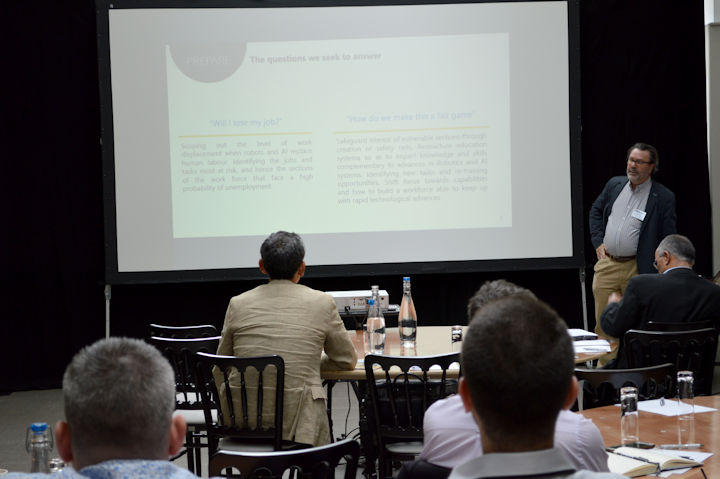
Gary Dymski, University of Leeds, rounds off the talks by outlining the socio-economic work starting on Self-Repairing Cities, addressing questions such as ‘Will I lose my job?’ and ‘How do we make this a fair game?’
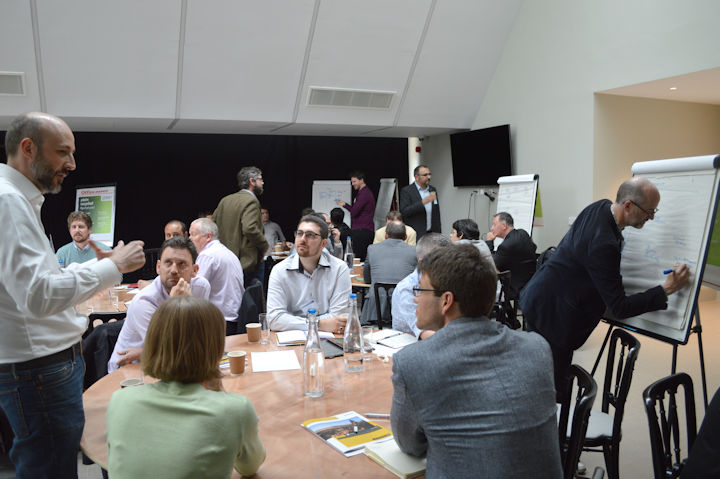
Where is all this leading? Time to discuss what innovations are round the corner and down the road.
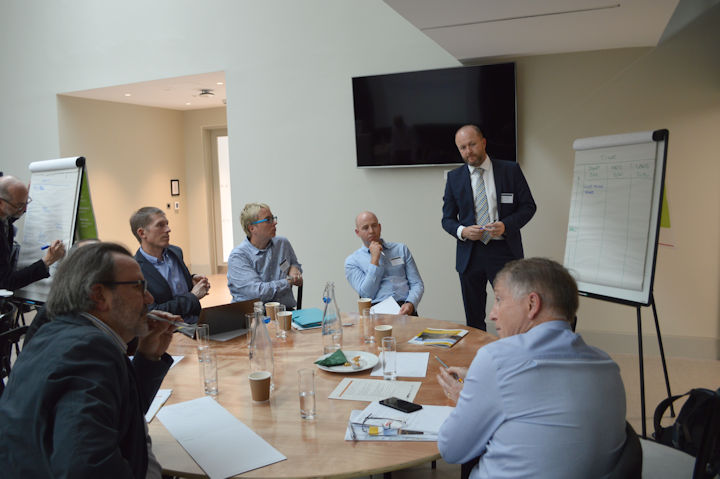
There is always one group creating trouble in the corner – how about using technology to drive towards cities with fewer roads and more green spaces – far future or possible soon?



